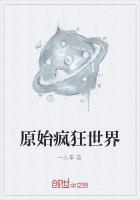With respect again to such qualities which are most useful to othersas humanity, justice, generosity, and public spiritthe esteem and approbation paid to them depends in the, same way on the concord between the affections of the agent and those of the spectator. The propriety of an act of generosity, as when a man sacrifices some great interest of his own to that of a friend or a superior, or prefers some other person to himself, lies not in the consideration of the good effect of such an action on society at large, but in the agreement of the individual's point of view with that of the impartial spectator. Thus, if a man gives up his own claims to an office which had been a great object of his ambition, because he imagines that another man's services are better entitled to it, or if he exposes his life to defend that of a friend which he considers of more importance, it is because he considers the point of view of disinterested persons, who would prefer that other man or friend to himself, that his conduct seems clothed with that appearance of propriety which constitutes the approbation bestowed on it. It is the accommodation of the feelings of the individual to those of the impartial bystander, which is the source of the admiration bestowed on a soldier, who throws away his life to defend that of his officer, and who deserves and wins applause, not from any feeling of concern for his officer, but from the adjustment of his own feelings to those of every one else who consider his life as nothing when compared with that of his superior.
So with regard to public spirit, the first source of our admiration of it is not founded so much on a sense of its utility as upon the great and exalted propriety of the actions to which it prompts. Take, for instance, the case of Brutus, leading his own sons to capital punishment for their con- spiracy against the rising liberty of Rome. Naturally he ought to have felt much more for the death of his own sons than for all that Rome could have suffered from the want of the example. But he viewed them, not as a father, but as a Roman citizen; that is to say, he entered so thoroughly into the sentiments of the impartial spectator, or of the ordinary Roman citizen, that even his own sons weighed as nothing in the balance with the smallest interest of Rome. The propriety of the action, or the perfect sympathy of feeling between the agent and the spectator, is the cause of our admiration of it. Its utility certainly bestows upon it a new beauty, and so still further recommends it to our approbation. But such beauty "is chiefly perceived by men of reflection and speculation, and is by no means the quality which first recommends such actions to the natural sentiments of the bulk of mankind."Adam Smith also differs from Hume no less in his theory of the cause of the beauty which results from a perception of utility than in his theory of the place assignable to utility in the principle of moral approbation.
According to Hume, the utility of any object is a source of pleasure from its suggestion of the conveniency it is intended to promote, from its fitness to produce the end intended by it. Adam Smith maintains, rather by way of supplement than of contradiction, that the fitness of a thing to produce its end, or the happy adjustment of means to the attainment of any convenience or pleasure is often more regarded than the end or convenience itself, and he gives several instances to illustrate the operation of this principle.
For instance, a man coming into his room and finding all the chairs in the middle, will perhaps be angry with his servant and take the trouble to place them all with their backs to the wall, for the sake of the greater convenience of having the floor free and disengaged. But it is more the arrangement than the convenience which he really cares for, since to attain the convenience he puts himself to more trouble than he could have suffered from the want of it, seeing that nothing was easier for him than to have sat down at once on one of the chairs, which is probably all he does when his labour is over.
The same principle applies to the pursuit of riches, under circumstances which imply much more trouble and vexation than the possession of them can ever obviate. The poor man's son, cursed with ambition, who admires the convenience of a palace to live in, of horses to carry him, and of servants to wait on him, sacrifices a real tranquillity for a certain artificial and elegant repose he may never reach, to find at last that "wealth and greatness are mere trinkets of frivolous utility, no more adapted for procuring ease of body or tranquillity of mind, than the tweezer-cases of the lover of toys." Indeed, there is no other real difference between them than that the conveniences of .the one are somewhat more observable than those of the other. The palaces, gardens, or equipage of the great are objects of which the conveniency strikes every one; their utility is obvious; and we readily enjoy by sympathy the satisfaction they are fitted to afford.















